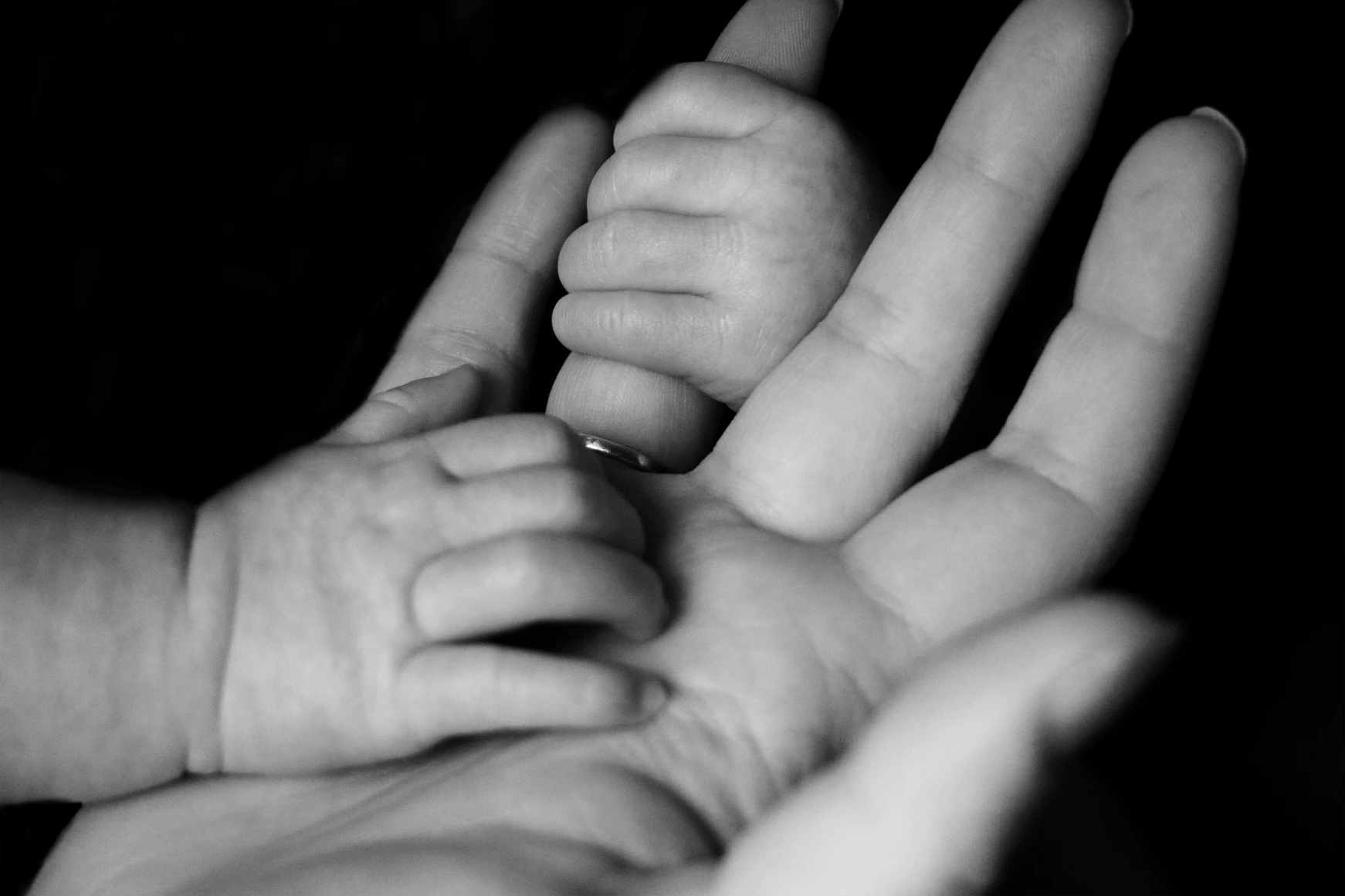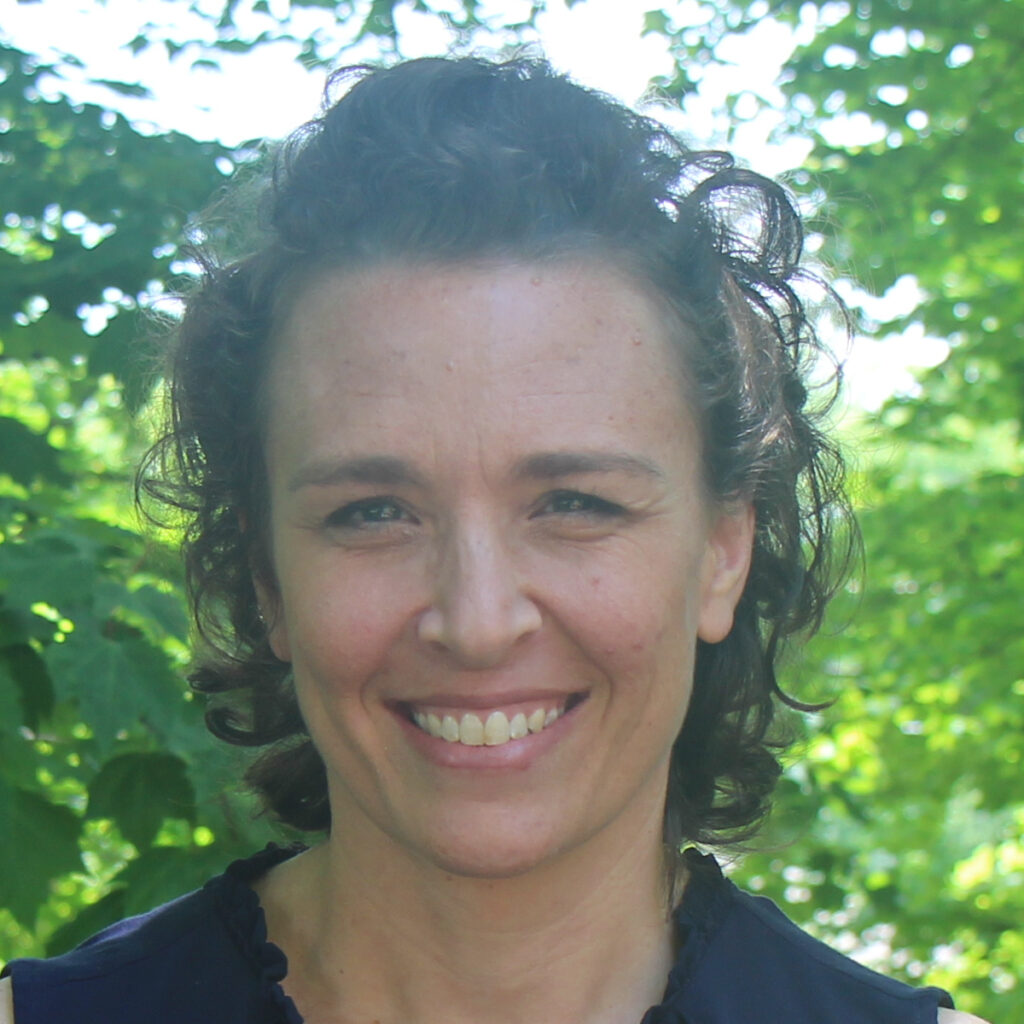by Jessamyn Rains

For most of my adult life, I was a reluctant conservative, slightly right of center.
I never loved Republicanism or its aesthetics. Republicanism always made me think of golf, guns, and big corporations: none of which I was particularly drawn to.
And yet, from the time I was a legal adult, I dragged myself to the polls and voted Republican: that first time it was Bob Dole, about whom I remember nothing. And then there was George Bush, and Mitt Romney, and (gulp) Donald J. Trump. I was always voting for the lesser of two evils, and there were a couple of times when I abstained from voting, once from sheer laziness, and once from feeling that the lesser of two evils was simply too evil to receive my support in any form, however small.
I voted Republican simply and primarily because I was pro-life.
To be more precise, I was a nominal pro-lifer. I was a Christian, and therefore I believed that life technically began in the womb and that it was therefore wrong to terminate a pregnancy. I’d been to a pro-life rally as a child with my grandmother. I’d sat in youth groups and seen pictures of aborted babies found in trash cans.
In spite of the horrific photos, the truth is that, in my heart, I sympathized with the pro-choice side.
In my childhood and youth, I spent quite a bit of time “on the other side of the tracks,” as they say, and I’d known women in desperate circumstances who’d had abortions. They weren’t heartless. In fact, many of them went on to be loving mothers. I saw them as victims, just as their unborn children were victims: victims of economic and relational desperation. Some were victims of various kinds of abuse. They were backed into a corner, and they believed that abortion was their only way out.
I used to get annoyed when I’d see middle-class women in their minivans with their pro-life bumper stickers. Easy for them to be pro-life, I would think. They’ve probably never experienced poverty, or abuse, or desperation of any kind. I didn’t realize then the extent to which I was judging and stereotyping; I was simply wrestling with a feeling that there was a disconnect between the pro-life culture and the needs of the people they were trying to reach.
I wasn’t the only reluctantly-conservative, nominal pro-lifer out there: there were many of us of my generation who found ourselves stranded in some kind of edgy moderate-land, where we voted pro-life but critiqued the movement for being “pro-birth”–not caring much about those lives after they were born–-not caring much about their mothers-–and not lifting a finger to help them climb out of those adverse circumstances which had led the mothers to contemplate abortion in the first place.
But a shift began to take place in my heart–-and in society–-that made this Laodicean position untenable.
First, as a brand new expectant mother, I heard my unborn child’s heart beat. And then I saw her, at a nine-week ultrasound, kicking and wiggling around. At twenty weeks, I saw her bones–-her rib cage, spine, arms, legs, and face–- and I saw her blood flowing through the chambers of her heart. Then, seven months later, after thirteen hours of agonizing pain, she was placed on my chest, whimpering and crying.
When I awoke the night after she was born, I looked to my left, and there she was, swaddled in a blanket, watching me through the side of her bassinet with those newborn eyes. I knew that she was someone: a distinct and new human being who had come into the world, unrepeated and unrepeatable, of inestimable worth, a human being who depended on me, whom I was called to defend, nurture, and protect. Moreover, I knew that something profound had happened to me and through me: I had brought new life into the world.
Two years later, there was pro-life outrage against Planned Parenthood and the trafficking of fetal body parts–over tissues and cells and organs.
In response, the “Shout Your Abortion” social media campaign was launched. No longer was the pro-choice side speaking as though the decision to get an abortion was a difficult one, made by a person backed into a corner by difficult circumstances, or that it was a necessary evil permitted to save women from bleeding to death from back-alley coat hanger operations: Abortion, in the minds and mouths of its supporters, became an unassailable human right. The right to an abortion became something you believe in the way some folks believe in the American flag: a corollary to one’s inalienable right to “the pursuit of happiness.”
Less than a year later, the state of New York expanded its abortion rights, after which the state “celebrated” by lighting up the World Trade Center in pink. Many other states followed suit, including my home state, Illinois, who celebrated by placing a blue billboard with a pink flower on it at the state line that reads, “Welcome to Illinois, where you can get a safe, legal abortion.”
All this public celebrating -–this nearly–religious fervor over the right to a procedure once considered a necessary evil by a large swath of its proponents–-struck me as a departure even from the pro-choice reasoning found in the majority opinion of Roe vs. Wade, which argues that the fetus’s right to life increases (and the mother’s right to terminate the pregnancy decreases) as the pregnancy progresses.
Somewhere in the middle of all this I turned forty and went through a midlife crisis of sorts. I began to wade through a past of wounds, regrets, and disappointments. I looked back and saw all the things I would have done differently if only I had the chance. For several months, the ghosts of various selfish and foolish choices in my past surrounded me, haunted me, and whispered to me.
As I saw it, I could respond in one of three ways to the accusations of my conscience: 1) I could harden my heart and say that the things I had done were not wrong; 2) I could blame other people or circumstances for the wrongs I had done; or 3) I could take responsibility for my actions, repent, and hope in God’s mercy.
At this juncture, I realized that most of my life I had been choosing option # 2. I had been blaming others for my failures. I had excused myself from much culpability by rehearsing my troubles, traumas, and other mitigating factors.
But when I looked at my actions in their entirety, I could not hide from the selfishness that motivated them.
This ultimately led to a personal revival in my heart–-a season of repentance, forgiveness, and renewal–-and a fresh understanding of Christianity and salvation by grace through faith in Christ and a desire to live a new kind of life.
The thing about repentance is that it involves real sorrow, real regret. It involves grief over real wrongs committed and damage done. When you experience repentance, you wish with all your heart that you could undo the hurt.
As a result of my own repentance, I also began to experience vicarious sorrow: I grieved over the sins of others as well as my own, almost as though they were my own. As a new mother, sins against children affected me particularly deeply: I would hear of some story of neglect or abuse against a child, and I would lie awake, tormented by thoughts of those children, and I would grieve for the children and also for the souls of those who perpetrated such abuse.
I also began to grieve over abortion. And I came to the conclusion that–-even if all my critiques of the Republican party are correct-–and even if it is true that pro-lifers who drive minivans are callous and out of touch with the needs of women in dire circumstances–-this does not justify an ambivalent attitude toward killing unborn children in the womb.
Yes, we need to care for these women. We shouldn’t be callous or ambivalent about their lives either, especially those who are victims of abuse. And we need to consider the reality that many of the children born to mothers who contemplated abortion will likely need extra support throughout their childhood, not just at birth.
We need solutions to many of the problems in our society.
But killing should not be one of them.
“Killing” is a strong word, one that I usually avoid when discussing this topic. But now that Roe v. Wade has been repealed and abortion rights and restrictions have reverted back to the states, the pro-abortion rhetoric has embraced the language of killing and death: “embrace abortion as killing” and “sometimes we choose death” are among recent pro-choice soundbytes.
We see these words in black and white: Do we see the grim reality behind them? Not only in loss of lives, but in loss of sensitivity and conscience? Do we see the way this propaganda is attempting to normalize and remove shame from the act of killing?
Now that I am in my forties, I am the pro-life woman driving a minivan full of kids. While I still look askance at some of my fellow-conservatives and their antics, the pro-life cause is one that I support without ambivalence. And I want to say to the woman who is considering abortion-–for any reason whatsoever: Please don’t do it. Please don’t commit this act of violence against your child and against your own body and soul.
For the woman who has had an abortion, or more than one: If my words seem harsh, my heart toward you is not harsh at all. Much more importantly, God’s heart toward you is full of love. Jesus, our sympathetic high priest, who has compassion for the innocent child in the womb whom He lovingly knits together from the moment of conception, also has compassion for the suffering, afflicted mother who is considering abortion or who has already had an abortion. His love for such is so great that He took the punishment for the sin of abortion–-and for all other sins–-in his own body. He was pierced, wounded, beaten, and killed for us, so that we sinners can be healed, cleansed, and declared righteous before Almighty God for all eternity.
Those of us who have been forgiven by Christ–-no matter what our past sins may be-–are not condemned to wear a scarlet “A” for the rest of our temporal existence. On the contrary: we are dressed in His robes of righteousness and given crowns of beauty in exchange for the ashes of our former lives.
Those first few steps toward God are the hardest when we feel shame for the things we have done. Jesus said it’s hard to come to the light, because when we do, our evil deeds will be exposed (John 3:20). It’s hard to look at our sins in the face and say, “Yes, I did that.” And yet, God’s Word promises that “If we confess our sins, He is faithful and just to forgive us our sins, and to cleanse us from all unrighteousness” (1 John 1:9). Salvation, forgiveness, and the cleansing, eternal love of God lie on the other side of our dark regrets.
As Christians, we need not only to be pro-life, but pro-eternal life. We should pray for the salvation of souls, whether they be baby souls born into difficult circumstances, white Republican souls in sports cars, or the angry, brazen souls of pro-abortionists. Every soul matters to God. We are, after all, made in His glorious image.

